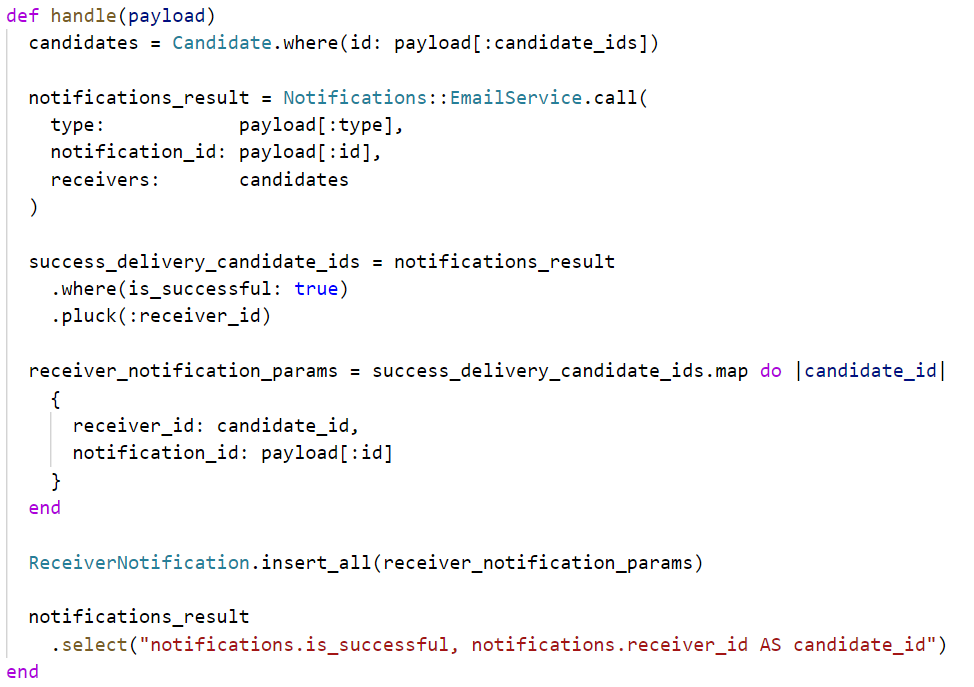We must say that the choice of a software development platform is not a decisive factor in the success of a startup. Persistent implementation, innovativeness, proper timing, and a favorable market situation are much more critical. First and foremost, a startup needs to conduct market research to find its niche and ensure enough software downloads to return the investment.
Still, some platforms may slow down the software development process or impose limitations. Thus, since choosing a platform is a long-term commitment, it’s better to do it carefully. You won’t be able to easily move from one framework to another down the road.
This article compares .NET vs. Ruby on Rails software development as startups’ top choices. You will learn more about their pros and cons to decide which framework is right for software development for startups.
What You Should Know About .Net and Ruby on Rails
RoR and .NET are robust frameworks and popular platforms for custom software development. Let’s briefly discuss their story and primary characteristics:
.NET

The first beta version of .NET appeared in 2002. This Microsoft technology is compatible with various languages, libraries, and editors that simplify the .NET app development process, such as Visual Basic, F#, and C#. Since .NET supports Windows, Linux, and macOS, it enables you to develop software running on all standard devices.
Even though .NET was associated with enterprise software development for years, the shift to open-source and cloud computing has affected its uses. Now, startups can leverage .NET capabilities to create regular web, mobile, or desktop apps. This way, .NET uses don’t differ from Ruby much.
Ruby on Rails

Ruby on Rails appeared in 2004 as an application web framework written in Ruby. Since it’s a model–view–controller framework, it provides web services, databases, and web pages with a default structure. It also utilizes JSON and XML data transfer web standards and HTML, JS, and CSS for interface-building.
Ruby on Rails is lawfully considered one of the fastest and most convenient frameworks. Yet, even though it’s true, the productivity of .NET-based engineering is just as great. Hence, you should choose between .NET and RoR, relying on a broader range of pros and cons.
Check out: How To Hire Developers For Startups [Step-by-Step Guide]
.Net Pros and Cons for Startups
Here are the advantages and disadvantages of .NET development that may affect your choice of framework.
Pros
-
- Windows, macOS, or Linux deployment. You can design any app on any platform based on the required functionality and capabilities.
- Powerful language features. Common executive environment, multi-language support, automatic resource management, and debugging support are only a few of many outstanding .NET features.
- Efficiency and productivity. .NET software needs less computation power and has a faster reaction time. For maximum efficiency, consider combining the .NET backend with Angular/React/Vue for UI in web solutions. To explore best practices and implementation strategies, consult our complete guide on .NET application development.
- Speed of development. The modern .NET stack is as fast as Ruby.
- Enhanced security. .NET 6 has a built-in auth mechanism, cryptography model and supports OpenSSL 3 and the ChaCha20-Poly1305 encryption scheme.
- Flexible deployment. Multiple .NET versions can simultaneously run on the same devices, allowing engineers to work on different projects while performing the deployment.
- Large community of .NET engineers. You won’t have a problem assembling a team and can always ask for tech advice on professional forums.
Cons
- Microsoft dependency. Since Microsoft backs up .NET, you will have to focus on this tech stack.
- Licensing cost. Even though .NET is open-source, using the Visual Studio IDE component and other add-ons may come with additional licensing fees.
Ruby Pros and Cons for Startups
Ruby on Rails is renowned for its simple syntax and convenience, but here are some other characteristics you should know.
Pros
- Ease of use. The intuitive syntax and enjoyable coding process make RoR pleasant to work with.
- Time efficiency. Simplicity, a shallow learning curve, and a variety of additional tools enable software developers to work fast.
- Smooth business logic implementation. You can implement complex business logic with minimum effort by adding a front-end framework like Vue or React to RoR.
- Selection of tools and libraries. You can tap into over 172 thousand open-source libraries called gems to quickly extend or modify the existing functionality of a web app.
- Strong security features. Ruby on Rails apps are resistant to vulnerabilities like cross-site scripting, SQL Injection, Forceful Browsing, and cross-site request forgery.
- Established industry standards. The DRY (Don’t Repeat Yourself) and CoC (Convention over Configuration) strategies at the core of RoR development ensure a more manageable and transparent way to build apps.
Cons
- Slow runtime performance. RoR is slower compared to other frameworks. Yet the performance issues mainly stem from the database and server environment, not the Rails itself, so with the right troubleshooting skills, you can handle them.
- Limited talent pool. Building a team of Ruby on Rails developers may be challenging due to the lack of skilled candidates.
Read more about NET Core vs. Node.js vs. RoR for App Development
So What Platform A Startup Should Pick
.NET is not better than Ruby on Rails in any way, and vice versa. You will have to analyze your business and tech requirements to decide which option is the most suitable in your particular case. Consider these tips to make the right choice:
- Prefer RoR for a basic single UI app and .NET for more complex projects.
- Choose .NET over RoR if you seek scalability and maximum performance.
- Gathering a large team of .NET developers is much easier than hiring Ruby on Rails experts. Ruby may be more relevant if you don’t expect your startup to grow rapidly.
If you are still unsure what framework is best for you, contact Leobit for consulting or engineering services. We will analyze your requirements and provide .NET or Ruby engineering services depending on which technology will bring the maximum benefits.
Leobit has substantial experience in building software based on both technologies. We have already assisted with developing a lawyer marketplace, shopping eCommerce platform, gambling solution, real estate platform, and many other RoR/.NET-based projects listed here.
Final Thoughts
The differences between .NET software development and Ruby software development are not significant enough to say that one framework is more powerful than another. You need to consider the expected performance, project volume, and team size to make the right choice. Yet keep in mind that you won’t be able to switch platforms easily after the project starts. Hence, it might be better to use the assistance of an experienced software development provider like Leobit.
Contact us to get the project estimates.













